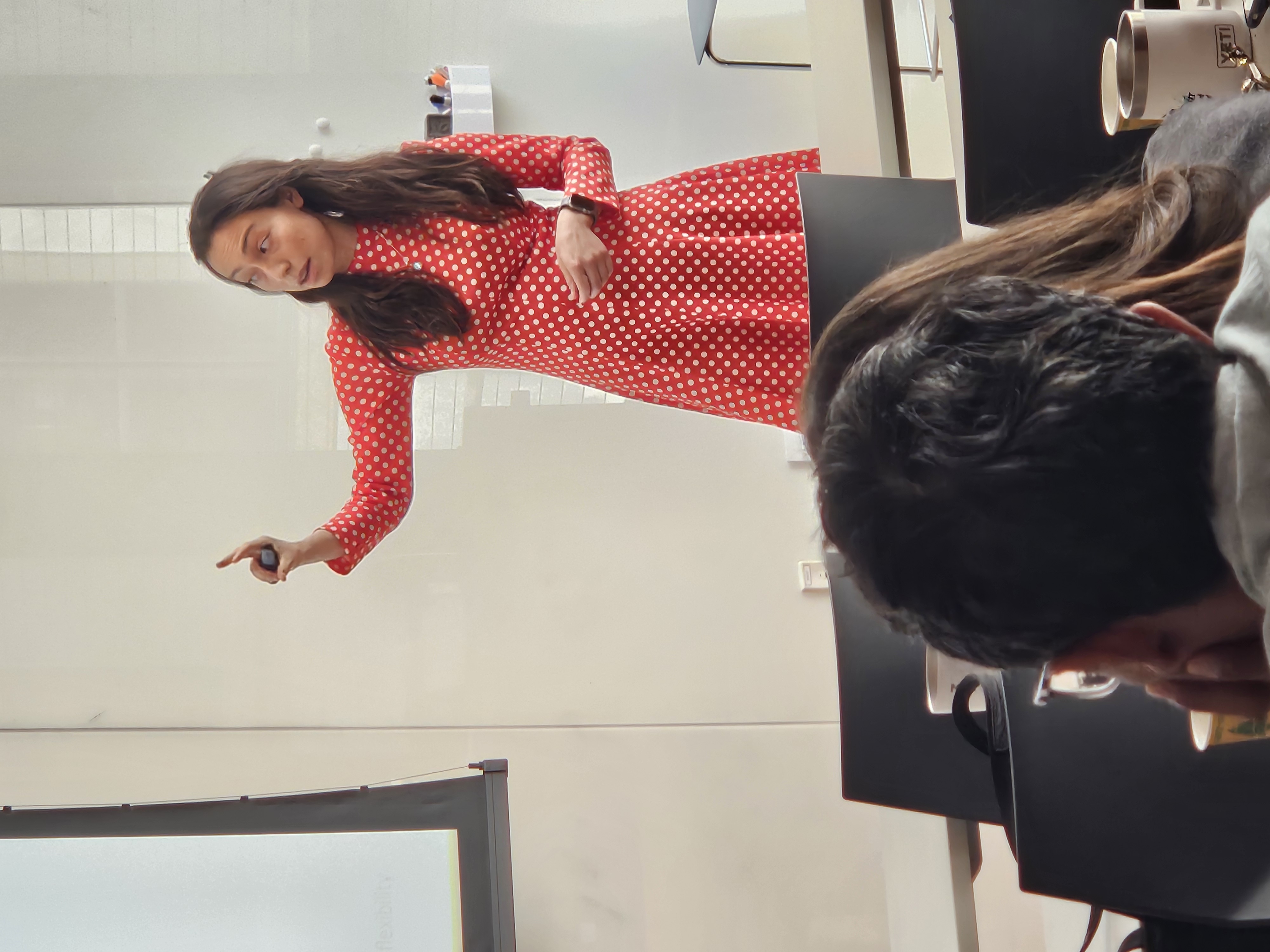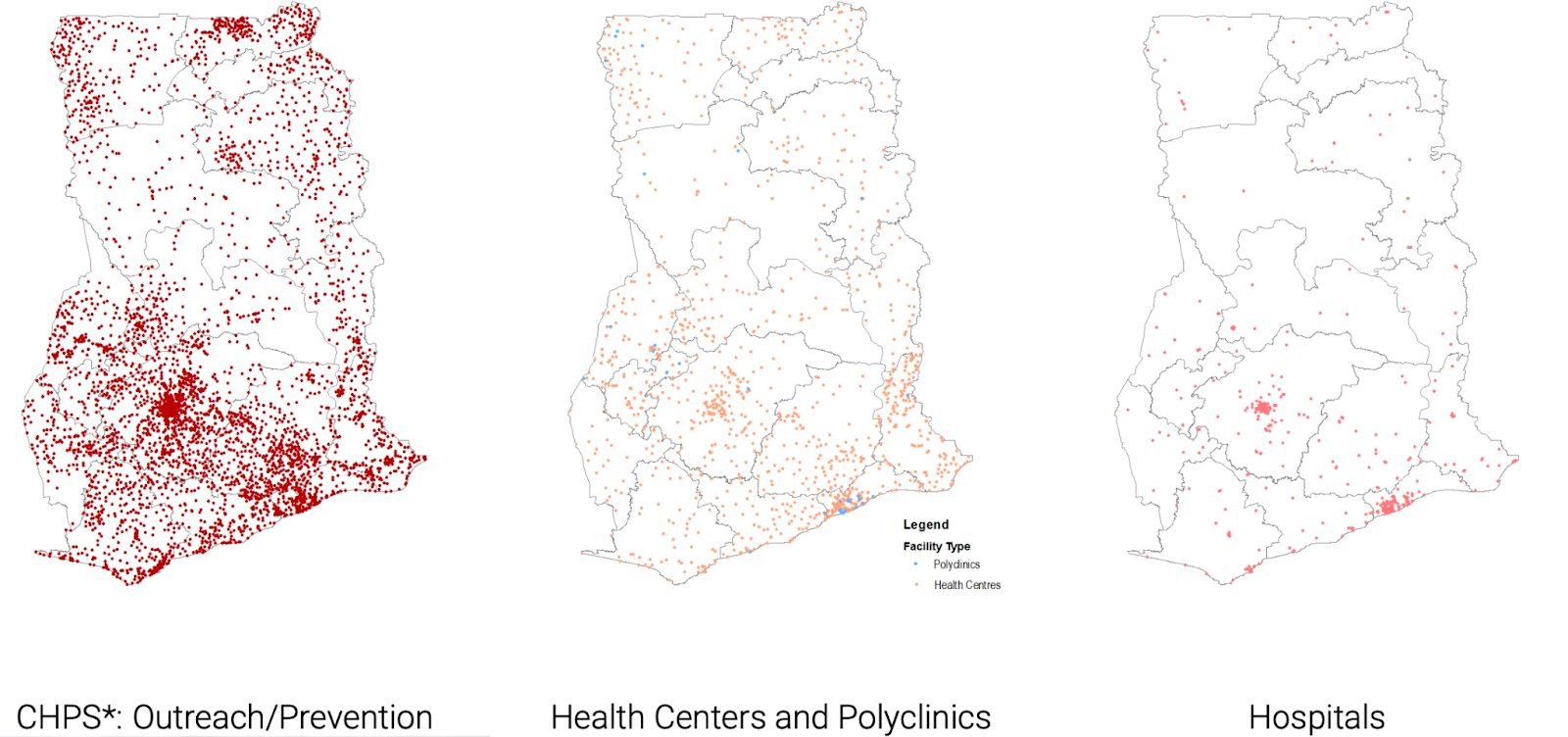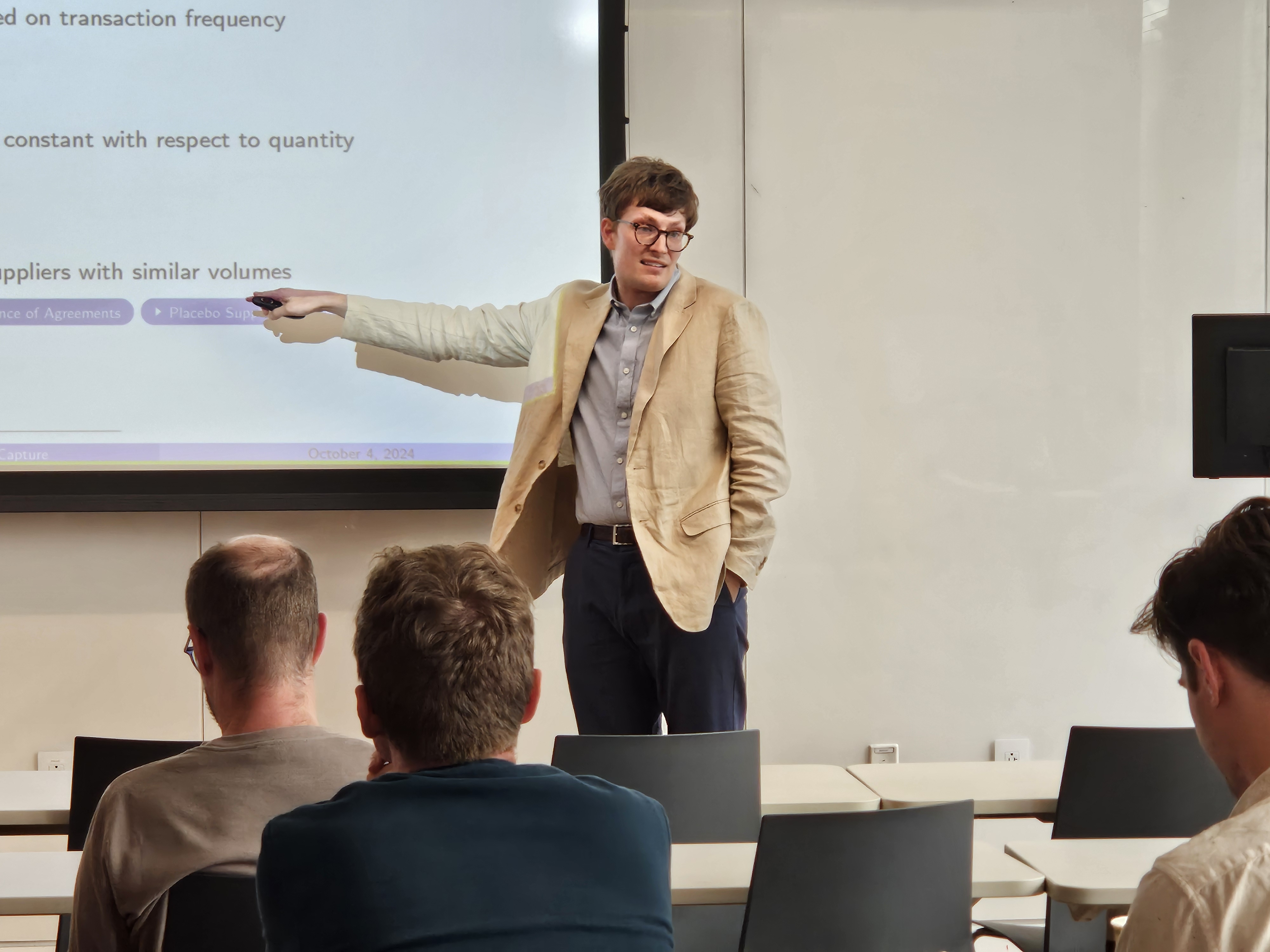Economic insights from Postdoctoral scholars: EGC holds this year's first Postdoc Retreat
The October 4 event featured EGC postdocs Binta Zahra Diop, Lisa Ho, Russell Morton, and Lucy Page presenting work on topics as varied as deforestation, garment markets, and rural healthcare systems.

Early-career economists researching topics as varied as deforestation, garment markets, and rural healthcare systems shared their research with the EGC community on October 4 – the first of a series of Postdoctoral Retreats. The vibrant cohort of 8 recent PhD graduates will spend 1-2 years contributing to an intellectual community that fosters fresh thinking and dialogue on challenges in global development.

Lisa Ho presents at the October 4 EGC Postdoctoral Retreat.
“Being a postdoc at EGC and IE has been the perfect next step after the PhD, as it's allowed me to collaborate with a fantastic group of faculty, postdocs, and other scholars with similar interests,” postdoctoral scholar Lisa Ho said. “I’m grateful to be part of a research center that has such a strong alignment with my research interests on gender and digital work.”
Two retreats this fall offer a glimpse into EGC postdocs’ work as they pursue independent research agendas. The first featured presentations from Lisa Ho, Binta Zahra Diop, Russell Morton, and Lucy Page. The second retreat will take place on November 8.
Binta Zahra Diop on labor and healthcare in Ghana
Binta Zahra Diop is studying the relationship between the central allocation of labor and productivity in the Ghanaian health system.
The system is tiered: large hospitals are in urban areas, and rural areas have small community healthcare centers with just a few nurses on staff. In research with co-authors based at the Ghana Healthcare Service and at the University of Michigan, Diop aims to estimate the productivity of healthcare workers, and measure gains from reallocation to the quantity and quality of healthcare services provided.
Diop is a Kuznets Postdoctoral Associate at the EGC, working on topics at the intersection of labor and development economics primarily in Africa. Her work aims to understand migration and location choices of people under constraints, both positive (driven by central policy choices) and normative (from fairness principles). She received her PhD in Economics in 2023 from University of Oxford during which she received the Edgeworth Prize for outstanding DPhil thesis in Economics.

Distribution of healthcare facilities in Ghana.
Lisa Ho on gender and labor in India
Lisa Ho’s research looks at women’s employment in India and how this changes with flexibility in jobs. Similar to several other low- and middle-income settings, the state of West Bengal in India has a large latent labor force of increasingly educated women who would prefer to have paid work, but do not. Their obstacles include gendered norms and the time/location inflexibility of commonly available non-farm jobs.
Ho’s project tests whether home-based flexible employment for women can serve as a stepping stone towards other kinds of paid work. It also captures both how the provision of flexible jobs can play a role in loosening the norms constraining women’s work outside the home, and documents the costs and benefits of working from home from an employer’s perspective. This is the focus of Ho’s job market paper.
Ho is a Postdoctoral Associate with the Inclusion Economics initiative co-hosted by EGC and the MacMillan Center. She studies development and labor economics, with a focus on female labor force participation, digital work, and the evolution of gender norms. Ho graduated with a PhD in Economics from MIT in June 2024.
Russell Morton on bargaining in the Indian garment sector
Russell Morton’s most recent work is on the agreements made between trading partners in the Indian garment industry, where “spot markets” (where goods are bought and sold “on the spot,” at the current market price) don't always function smoothly. These agreements can contain insurance-like terms that shift risk onto the larger firm – the buyer – which helps small suppliers, albeit in exchange for a discount (effectively a risk premium). However, low prices paid to suppliers could also reflect the larger firm strategically threatening to switch sourcing to an in-house supplier. Morton’s research estimates that discounts derive from insurance-like terms, rather than strategic replacement threats, and highlights policies that can increase prices paid to small firms.
Morton is a Postdoctoral Associate with the Markets and Development research initiative at EGC. He studies how the organization of production in low-income countries affects the efficiency of supply chains, and the distribution of the economic gains they create. He completed his Ph.D. in Economics from the University of Michigan in 2024.

Russell Morton presenting at the Postdoc retreat.
Lucy Page on deforestation in northeast India
Lucy Page’s current research focuses on the effectiveness of a “payments for ecosystem services,” or PES, program in the Indian state of Meghalaya – one of the country’s largest carbon sinks – where households are paid to conserve the forests on their land. This work, joint with EGC’s Rohini Pande, uses a machine learning model to identify land especially at risk of deforestation, and then considers the impact of paying landowners a premium to conserve that land. By investigating how to increase the cost-effectiveness of PES programs, this research speaks to debates in the voluntary carbon market (where carbon-emitting companies buy offsets that claim to reduce carbon emissions elsewhere in the world, often via forest conservation projects like PES).
Page is a Postdoctoral Associate with the Inclusion Economics research initiative at EGC and the Macmillan Center. She studies environmental economics, with a focus on collective action and political economy. Page graduated with a PhD in Economics from MIT in June 2024.
Receiving support and contributing to a community
“EGC’s postdocs add so much to the intellectual community here, collaborating with our faculty on studies and mentoring students who are beginning their ideation on research projects and careers,” said Aishwarya Lakshmi Ratan, EGC’s Deputy Director. “The first set of presentations at our 2024 postdoc retreat covered a wide range of topics from productivity at work – whether in a short-term data entry job that is worked from home by women in India, or whether that is work in the healthcare system of large cities or small villages in Ghana – to bargaining between large firms and their smaller suppliers, and payment contracts to encourage forest conversation.”
The conversations will continue on November 8, when Patrick Agte, Nina Buchmann, Maria Kogelnik, and Meital Pereg Mizrachi will present on their research